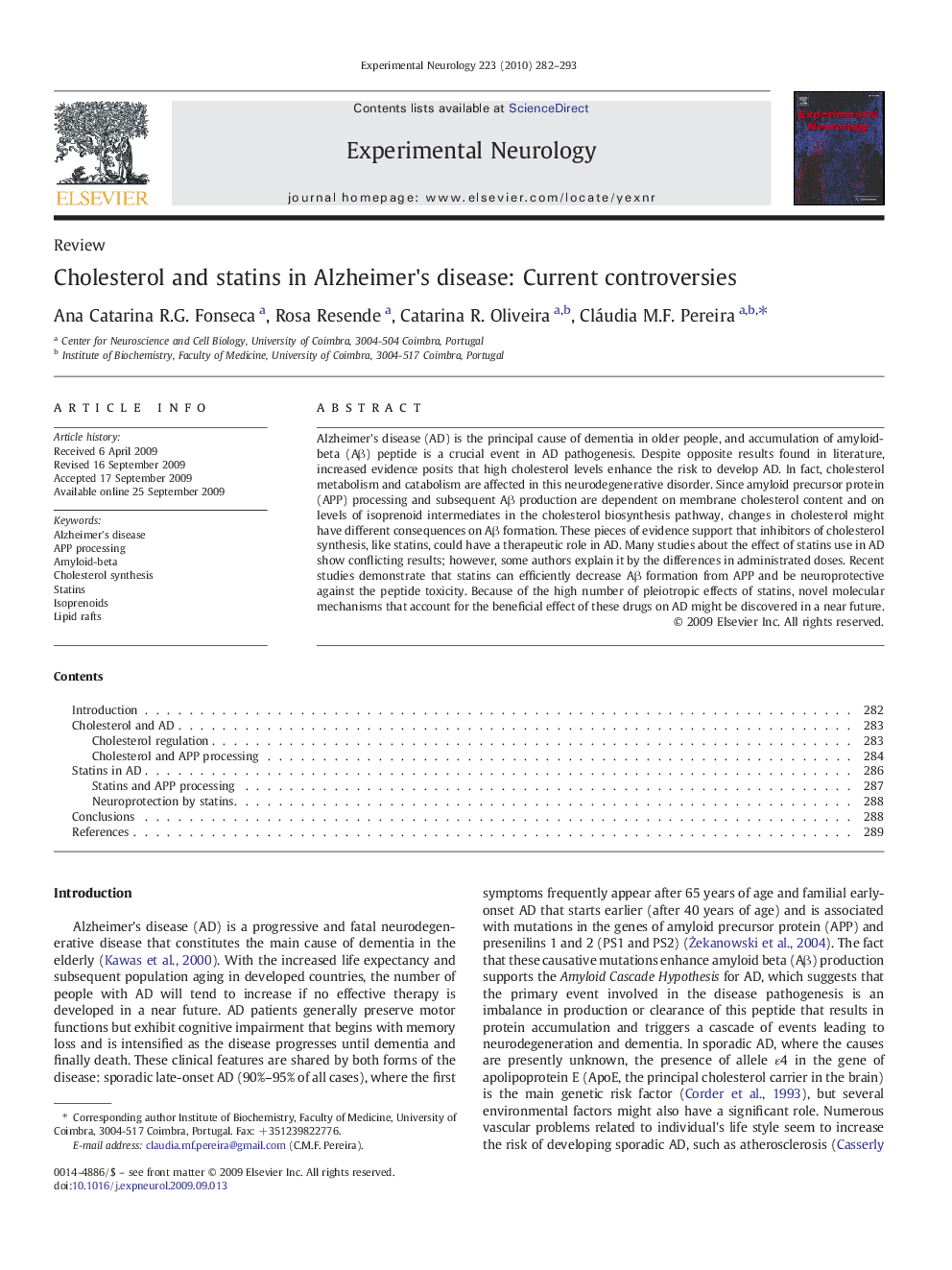| کد مقاله | کد نشریه | سال انتشار | مقاله انگلیسی | نسخه تمام متن |
|---|---|---|---|---|
| 3055838 | 1186542 | 2010 | 12 صفحه PDF | دانلود رایگان |

Alzheimer's disease (AD) is the principal cause of dementia in older people, and accumulation of amyloid-beta (Aβ) peptide is a crucial event in AD pathogenesis. Despite opposite results found in literature, increased evidence posits that high cholesterol levels enhance the risk to develop AD. In fact, cholesterol metabolism and catabolism are affected in this neurodegenerative disorder. Since amyloid precursor protein (APP) processing and subsequent Aβ production are dependent on membrane cholesterol content and on levels of isoprenoid intermediates in the cholesterol biosynthesis pathway, changes in cholesterol might have different consequences on Aβ formation. These pieces of evidence support that inhibitors of cholesterol synthesis, like statins, could have a therapeutic role in AD. Many studies about the effect of statins use in AD show conflicting results; however, some authors explain it by the differences in administrated doses. Recent studies demonstrate that statins can efficiently decrease Aβ formation from APP and be neuroprotective against the peptide toxicity. Because of the high number of pleiotropic effects of statins, novel molecular mechanisms that account for the beneficial effect of these drugs on AD might be discovered in a near future.
Journal: Experimental Neurology - Volume 223, Issue 2, June 2010, Pages 282–293